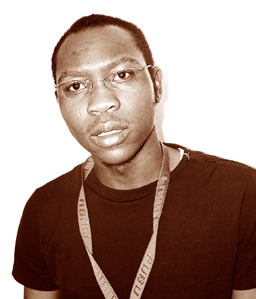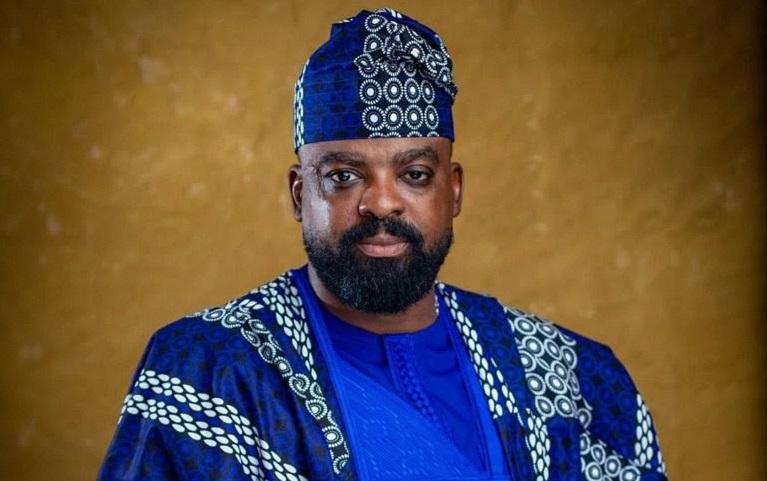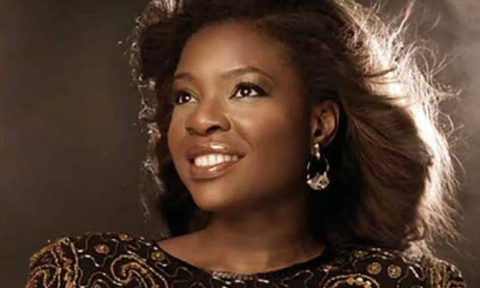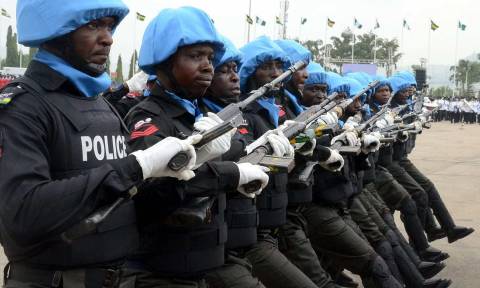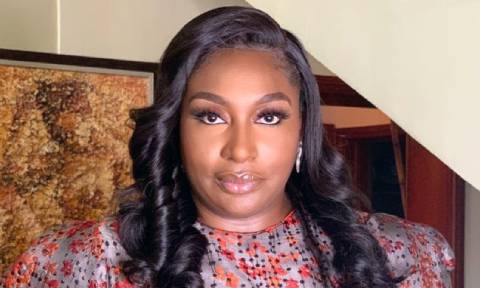
His name may strike strange chord to your ears, but Fidelis Duker remains one of the highly prized film makers this country has ever produced in recent time.
Last year, his concern for the education cum exposing the young ones manifested in the first ever Kids Alone Reality Show, which saw children from different ethnic groups and socio-cultural backgrounds coming together to live under the same roof for three weeks running, learning more about themselves and also the society in which they live in.
In this encounter, Duker speaks about the Kids’ project, his plans for this year’s edition of the show. In addition he took a quick swipe at the ailing state of the movie industry (Nollywood), calling however for all hands to be on deck to move this industry forward.
You organized the Kids Reality Show last year, what was the import of the show?
The Kids Reality show, held last year was independently financed, and it was basically to see how we can sue for a better society through our children. The idea was borne out of the fact that we hardly have children’s programme on our TV networks today.
Some years back, we used to have this programme called Tales by Moonlight running on our television stations. Having lost that to time, we came up with the idea to organize a reality show where kids between the ages of nine and thirteen years would come together without their parents in the house. That was how the Kids Alone Reality show was conceptualized.
We had to gather these children from different parts of the country. But interestingly, we didn’t succeed in getting kid-participants from the north, except the Middle Belt. On the whole, we had 20 children in the house for three weeks running.
Then we had the normal edition process until the last day. Apart from just putting them in a house, we felt there was need to inculcate our cultural values in them.
Today you find out that due to foreign influences, most of our children have lost these values. Children can now afford to say hi to the elderly which is not part of our culture.
We also put them through academic work because we felt there was need for us to test their knowledge. We taught them current affairs for them to know about this country (independence, former teachers).
What are we expecting from this year’s Kids Alone show?
This year we are going to have about sixteen house mates in the house instead of the twenty we had in the previous house. It was noisy and a little difficult controlling the kids.
So this year, we’ll also make sure that we get kids from all parts of the country including the north. We want this children to be able to discuss their various ethnic groups in the house because it can help us to achieve a better harmonious society.
A society where tribalism does not exist and where people are not afraid of living in any part of this country (we want to promote unity through these children).
What qualifies any kid to be part of the competition?
The children are expected to register on-line, while our team of judges handle the screening aspect of it. Last year, our judges were selected from the entertainment industry as well as the academic world.
But this year, we’re hoping to involve media personnel as part of our panel of judges. Right now, over four hundred children have registered on-line. We’ll make sure that all the ethnic groups are represented equally. Secondly, we’re going to check through their educational background because it’s not just about coming to play in the house.
The children are also expected to exhibit their academic talents so that they can learn from one another. We’ll choose the best sixteen children for this year’s edition of kids alone.
What’s the “theme” of this year’s edition of the Kids Alone Reality Show?
The theme is “To discover New Talents and future leaders”
When will kids alone kick off this year?
This year’s edition will kick off in April.
And what is supposed to be the star prize for the winner?
The star prize for last year’s edition was a N100,000, including scholarship. We also had consolation prizes. For this year, the star prize is a one year scholarship. That is to say that if the school fees is half a million, that’s what we’ll pay.
Aside the reality show, what other things are you engaged in?
I still run my TV programmes. For sometime now, I’ve been running Images a soap opera on TV and it is still on air. Also, I do have another TV sitcom called, Eldorado which is running too.
Right now, I’m working on another Sitcom called “Girls Next Door.” Images was running on AIT for sometime before the management of the station came up with the idea of asking us to be paying some N4. million per hour for airtime.
Why did it suddenly become so expensive?
According to them, it is because they are now on Satellite. In Nigeria, we run Television programmes from the wrong perspective. As a producer, I’m expected to write the script, look for sponsor and so on, then pay for airtime in Nigeria. But in other places it is not so.
The stations are supposed to have their own share of the production by looking for a sponsor or any other means.
The new airtime rate is just too expensive that many independent producers cannot afford to pay it.
So what was the former rate?
It was between N900,000 and N1.5 million per hour. Even at this rate, producers were not comfortable with it. And we all know that it is independent programmes that survives most of these local TV stations. Because some of these stations do not have programmes of their own. And this is one of the problems that has affected the marketing of movies in this country.
What are the producers doing to correct this anomaly?
At this point, I think it is important for the producers to come together and decide the future of their business.
What is the Nigerian Film and Video Censors Board (NFVCB) doing to boost the film industry?
I was also the president of that Board for four years. This calamity has gone beyond the president of NFVCB.
Nollywood is in a sorry state. And the only solution is for us to seek the assistance of those who enjoys the movie content (TV stations) to salvage the industry. The banks can only give us loan on interest and that’s not what we need now.
Could it be the ailing state of Nollywood that’s compelling most movie producers to veer into soap opera’s?
Yes! But that’s not even the solution because some are now turning the soaps into movies again. Last year, about thirty producers produced soap operas but right now, some of them can’t afford to pay for the air time. Imagine paying N4.million per hour.
The global financial meltdown is also affecting Nigeria so even when you produce, where will you get the sponsorship to be able to afford the price for air time. Nollywood was built on a wrong footing and that’s why we are facing several problems today.
People in the industry were initially carried away with the little success we achieved Right now the solution is for Nollywood producers to sit down and discuss how to revive this industry.
Before now, some producers tried to outsmart other producers by paying the artistes expensively that was the beginning of our major problem. All the guilds in Nollywood today have their own crises. Some are going to court to fight their president and so on. All these things are happening because the artistes are idle.
What is the way forward?
We need to start charting a new course for this industry with a sincere heart and one collective interest. We should be purposefully united. Both the Yoruba, Hausa and English producers should come together as one. Lets shun our differences so that Nollywood can succeed.
Then, we should also be able to fight against piracy because even as we complain, there are some persons who are eating fat on our sweat. Some Nigerians are busy pirating our films outside this country and making so much money from it. The copyright commission should stand up to the challenge.
By Bridget Amaraegbu

